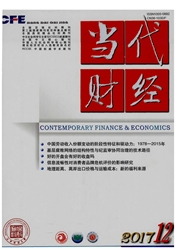

 中文摘要:
中文摘要:
作为资本市场的一个长久之谜,封闭式基金折价一直得到学术界及实务界的关注。基于利益输送视角对这一现象进行实证研究后,发现基金经理具有从封闭式基金向开放式基金进行利益输送的自利动机,且这种动机在行为上的体现直接影响到基金折价的截面差异。同时还发现封闭式基金对开放式基金的利益输送额越大,则该封闭式基金的折价率越大;相较于规模小的基金,规模较大的封闭式基金的基金经理的利益输送行为对折价的影响更为显著。这一结论对于中国基金的监管及制度的设计具有比较重要的现实意义。
 英文摘要:
英文摘要:
As a puzzle in the capital market, the discount trading of closed-end fund has been a focus attracting the academic circles as well as the business circles. Through an empirical study of the phenomenon from the perspective of the cross-fund subsidization, it is found that the fund managers have self-interest motives to transfer some benefits from closed-end fund to opened-end fund, such motives, if reflected on their behaviors, will directly affect the cross-sectional variations of fund discount. It is also found that the more of the amount of the subsidization from the closed-end fund to the opened-end fund, the higher the discounted rate of the closed-end fund; compared with the small-size closed-end funds, the subsidizing behavior of the fund managers of larger-scale closed-end funds has a much more significant impact on the discount rate. This conclusion has a relatively important practical significance in the supervision and control of China's funds and the institutional design.
 同期刊论文项目
同期刊论文项目
 同项目期刊论文
同项目期刊论文
 期刊信息
期刊信息
